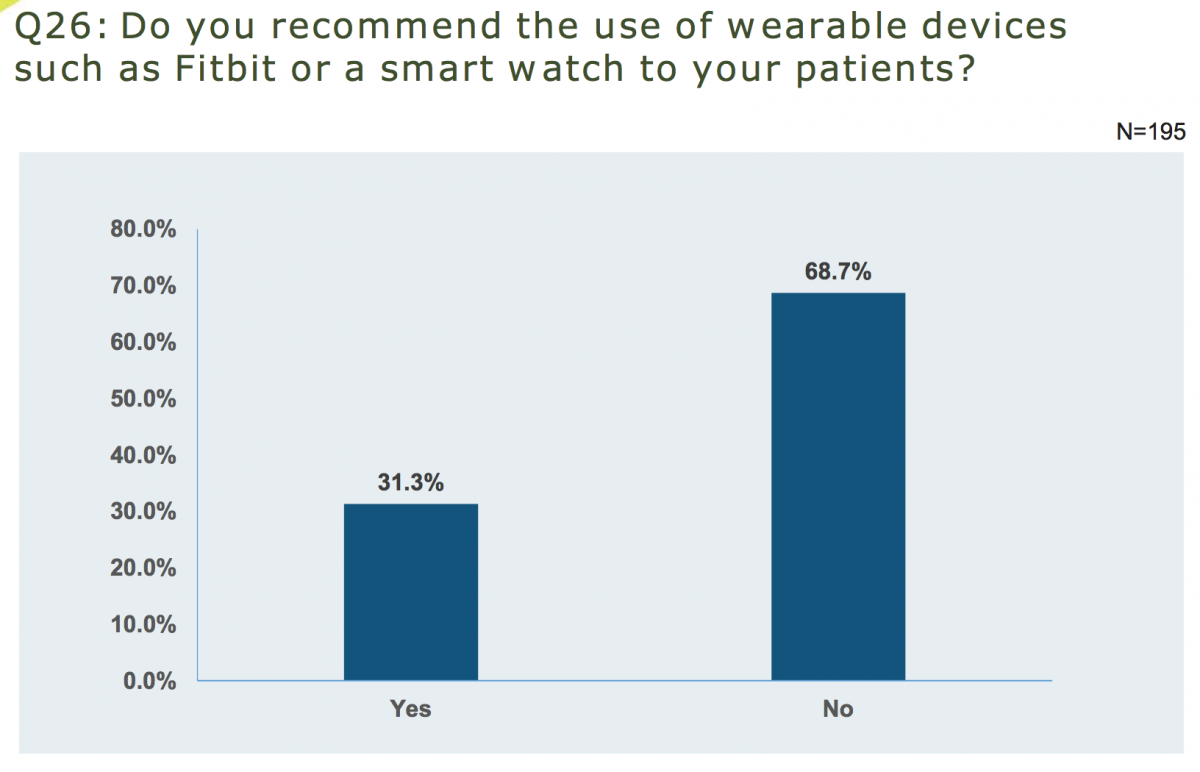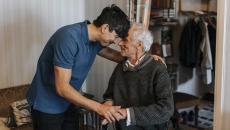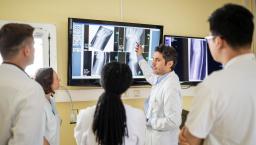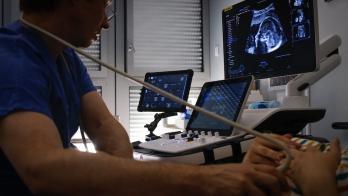 Millennials and Silents (the generation born prior to 1942) are the least likely generations to use tech tools like wearable fitness trackers, according to a survey of 2,600 WebMD users, presented today at HIMSS16 in Las Vegas. But younger and older respondents gave very different reasons for why they don't use these tools.
Millennials and Silents (the generation born prior to 1942) are the least likely generations to use tech tools like wearable fitness trackers, according to a survey of 2,600 WebMD users, presented today at HIMSS16 in Las Vegas. But younger and older respondents gave very different reasons for why they don't use these tools.
"Millennials were more likely to select cost as their reason for not wearing their devices," Christina Hoffman, VP Quality and Strategy at Medscape said during her presentation. "On the other end of the spectrum, the Silent Generation says the reason they don’t is because a doctor hasn’t recommended it. What’s the opportunity here? The implication is that Millennials might benefit from free devices and the older generations, if the doctor says to them, this might be helpful for you, they’ll do it."
That same trend, of patients being more likely to engage in a behavior with a doctor recommendation, held for patient portals across all generations. That is, the greatest predictor of patient portal use was whether the patient's doctor recommended it.
"If the doctor recommends that they register for the portal, not the administrative person, but the doctor themself makes the recommendation, it’s nearly 100 percent uptake," Hoffman said.
The survey, and a companion survey of 195 clinicians, looked at four distinct generational groups: Silents, Baby Boomers, Generation X, and Millennials. They found different generations used portals differently: By and large, Silents used only a few features, checking labs and ordering prescription refills, while Millennials used a broad range but were most likely to use it to check benefits and coverage.
Some general findings were also interesting. Baby Boomers were the most likely to follow a prescribed treatment plan. Boomers and Silents were most likely to proactively bring information to their doctors. Millennials were among the least comfortable talking to their doctors and were less likely to know when to call their doctor.
"Millenials are not likely to engage until they need to do so, but once they’re ready we need to be ready for them," Jamie DeMaria, SVP of education at Medscape, said. "They consume content differently than all other individuals."
On the provider side, millennial doctors were the least likely to report being generally able to tell if their patients were engaged. This could simply be a result of that cohort being younger and less experienced, DeMaria noted.
Across the board, only 31 percent of physicians said they recommended wearable devices to their patients. Of those who did, 67 percent said the biggest benefit of wearables was motivating individuals to follow a treatment plan. Just 20 percent cited the patient-generated data such a device would provide.
"Nearly 70 percent aren’t recommending [wearables]" DeMaria said. "And when we went back and we looked at why, the physicians gave the same reasons the patients gave: cost, too difficult to use, what is this data going to be used for and how does it interact with my systems? A Fitbit’s great, an Apple Watch is great, but I don’t know how to use that data. Some physicians have figured out how to incorporate that data, but the vast majority still haven’t."




















